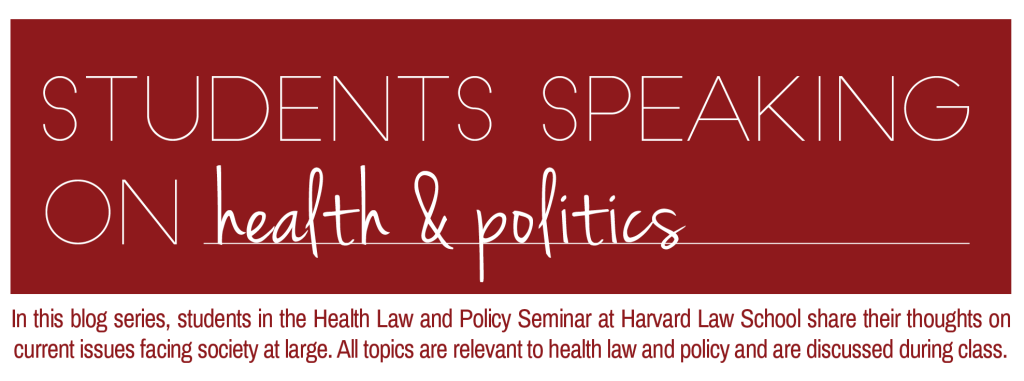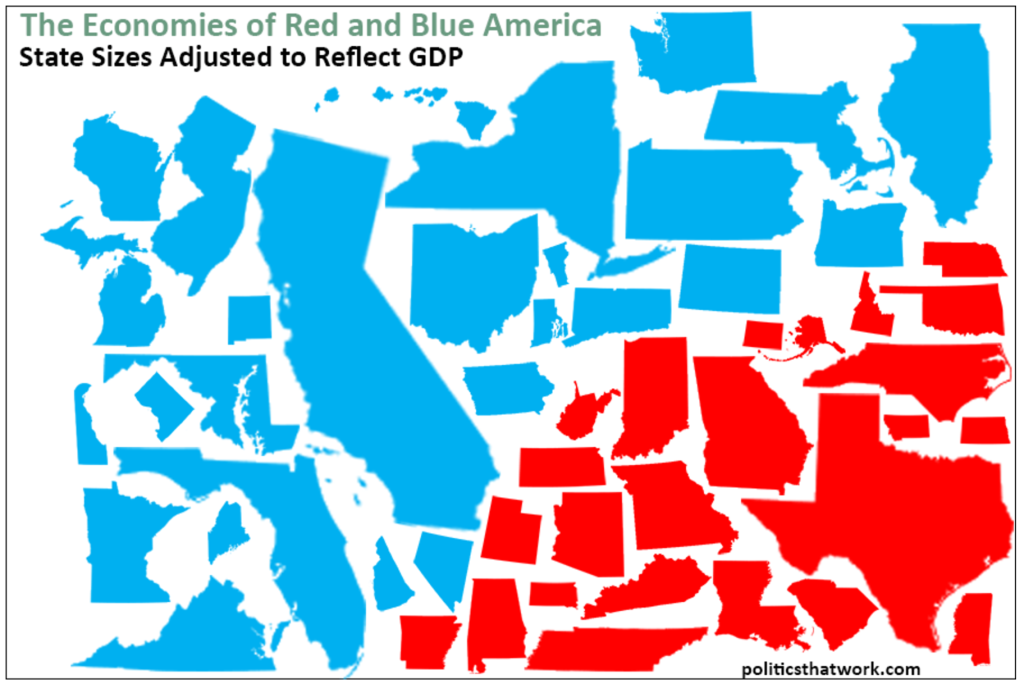 This blog post was written by Namita Dhawan, a Student in 2017 Fall Semester of Harvard Law School’s Public Health Law and Policy Seminar.
This blog post was written by Namita Dhawan, a Student in 2017 Fall Semester of Harvard Law School’s Public Health Law and Policy Seminar.
Ideological differences between Republicans and Democrats have proved obstructive to the well-being of millions of Americans, particularly when it has come to disparate stances on health care.
While poverty is not unique to traditionally Republican “red” states in the South, it is no coincidence that states with more conservative governors are those with some of the worst health care/epidemiological statistics. It’s also no coincidence that these same states have some of the most extreme instances of poverty as well. The fact that the states’ representatives generally eschew federal government involvement and monetary assistance maintains such levels of poverty.
That poverty leads to poor health is not a controversial idea; and while conservative states would like the impoverished to put “skin in the game,” certain health conditions undeniably compromise one’s ability to work and thus, the cycle of poverty continues. It is imperative that these states consider government assistance monetarily, as well as in the form of health-care coverage. However conservative ideology, as powerful as it is today, will continue to prevent such considerations.
 The threat to Title X posed by conservative governors, and recently, House Republicans who released a funding proposal which would effectively eliminate Title X funding, exemplifies the consequences of such adherence to conservative social ideology. While Title X doesn’t pay for abortion services, the fact that some of Title X grants go to Planned Parenthood clinics (which provide abortions) is evidently enough of a reason for Republicans to fight the program until its death. While the program proves highly cost-effective (the Guttmacher Institute has calculated that investing $1 in such services saves $7 in public/Medicaid-related expenditures), cost-effectiveness is not necessarily a priority when an indirect connection to abortion is at play. This is particularly ironic in consideration of the fact that in 2012 it was calculated that Title X funding helped prevent about 363,000 abortions. Threats to Title X are particularly dangerous with the current public health crisis, Zika, since Planned parenthood and other Title X funded clinics are helping women learn how to avoid the virus, and that especially involves careful family planning.
The threat to Title X posed by conservative governors, and recently, House Republicans who released a funding proposal which would effectively eliminate Title X funding, exemplifies the consequences of such adherence to conservative social ideology. While Title X doesn’t pay for abortion services, the fact that some of Title X grants go to Planned Parenthood clinics (which provide abortions) is evidently enough of a reason for Republicans to fight the program until its death. While the program proves highly cost-effective (the Guttmacher Institute has calculated that investing $1 in such services saves $7 in public/Medicaid-related expenditures), cost-effectiveness is not necessarily a priority when an indirect connection to abortion is at play. This is particularly ironic in consideration of the fact that in 2012 it was calculated that Title X funding helped prevent about 363,000 abortions. Threats to Title X are particularly dangerous with the current public health crisis, Zika, since Planned parenthood and other Title X funded clinics are helping women learn how to avoid the virus, and that especially involves careful family planning.
The fact that Title X is being debated by white men in Congress is particularly laughable when we consider the fact that threats to Title X disproportionately affect low-income, women of color, who make up the bulk of the clientele of Planned Parenthood and similar clinics. While other populations are subject to similarly dysfunctional health care systems, such as veterans and the Department of Veterans Affairs, there’s no debate about whether veterans deserve such services. To debate whether Title X should be repealed is to debate whether low-income women color and women of color deserve access to health care.
Ultimately, until there is, at the very least, bi-partisan consensus that health care is a right that the government must guarantee, there will continue to be threats to the health of various populations in America. Democrats and Republicans alike must consider how many people and which people are dying as a result of each bill passed and each instance of stalemate.



Health Law & Policy, Commentary
Braidwood Management v. Becerra: Updated FAQs for Health Advocates and Providers
July 22, 2024